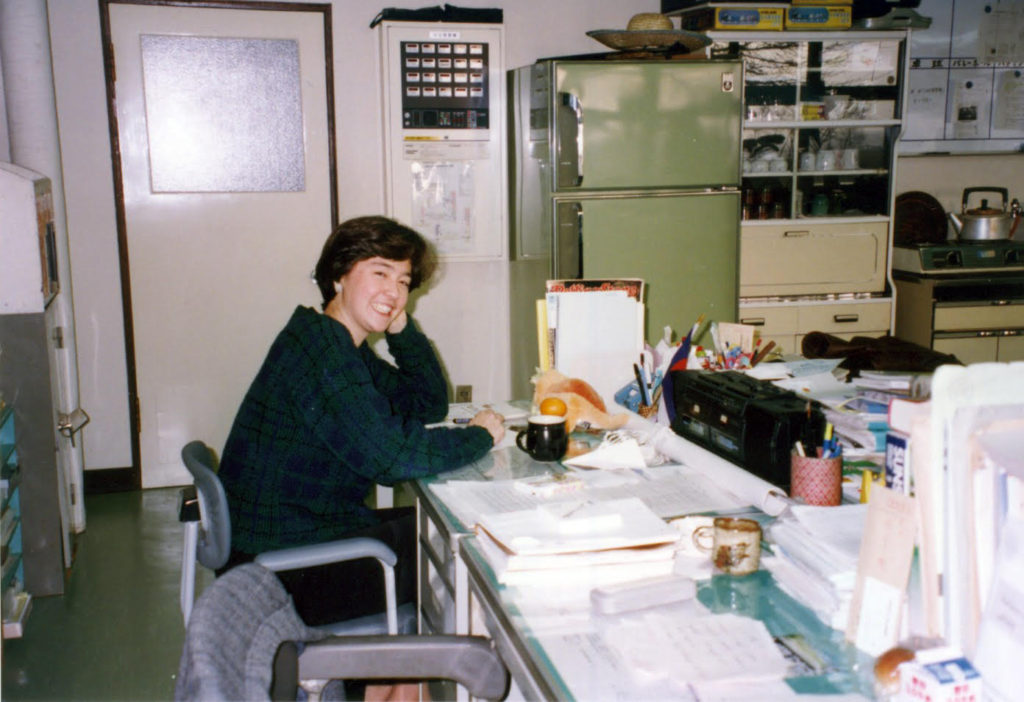Welcome to the Senpai Success Story, where you can read about others who have walked a unique career path using their Japanese language/cultural skills. (Psst: Senpai means “mentor” or “teacher,” and the concept is important to understand for anyone wishing to work in a Japanese business setting.)
Advice from a former JET: Welcome to reverse culture shock.
It’s hard to adjust after living overseas. Everything you missed is somehow different from how you remembered it. Your friends are talking about events you missed and songs you don’t know. And did that local furniture sales guy always look like that in his ads?
I’m a career counselor
… and I specialize in working with creative people and those who have lived and worked abroad. My clients are often struggling with identity issues, including gender and self-definition, and are usually people who don’t fit any sort of standard mold of work. I’ve even done some sessions for people still living in Japan, as they struggle to decide what’s next.
I love what I do, but it wasn’t an easy journey.
After college, I joined the Japan Exchange & Teaching (JET) Program(me) and spent 3 years teaching English in a couple of junior highs in a couple of small towns in Hokkaido.

When I got back, I was clear on one thing:
I didn’t want to teach.
But what did I want?
I had a degree from a fancy college, I had experience living overseas, and I had no idea what was next. Falling into that dangerous trap of skills-based work, I tried my hand at translation. I’d enjoyed that when I was in college, but when it was my job, that was a different story. Part of it was that I was translating documents about rubber patents, and part of it was that I was at a law firm, which is not the sort of place someone like me belongs. (I write this sitting in my kitchen desk, with purple hair.) But I felt like I was supposed to translate because that’s what people with another language do, right?
Well, honestly, no.
Choosing a different career path
I’ve since gotten my master’s degree in counseling psychology and become a career counselor, and I see this very problem almost every day. We get stuck in the place of overthinking what we’re good at, but we forget to consider what we value and what we enjoy. I am a quirky and free-wheelin’ sort of person, so a corporate setting like a law firm is miserable for me. I also enjoy human interaction, so sitting in a cubicle with some dictionaries for company was downright depressing. I hated that job, and they ultimately fired me, which was one of those blessings in disguise, although at the time it really stank. But the truth is that I would have stayed in that same job, miserable and depressed, until the lawsuit got settled, and all I would have gained was about pounds (I was eating badly and not exercising) and a couple points on my blood pressure.
Committing to growth and happiness
When I got fired, a friend recommended a career counselor, and that was what changed things for me. I really committed to my own growth and happiness, and even though I was in a minimum wage retail job, scraped together the fees to keep seeing my counselor, Lucinda, a couple times a month. We ate a lot of beans and rice, and we did away with such luxuries as cable and new books. Through that process, I came to realize how much I enjoy working with adults who are really committed to making positive changes in their lives, and here I am today.
In conclusion
Not everyone needs to love what they do, but for those of us who do, spending some good time really thinking about what we enjoy and what we need is key. It’s not worth it to wake up on a Monday morning and want to cry and crawl back under the covers.
Don’t make the mistake that I did. Skills can always be gained, but your interests and passions are yours alone.
Emily Kikue Frank, M.A
Pronouns: she, her, hers
720-839-9769
Helping quirky, creative types find fabulous careers at https://www.denvercareercatalyst.com/
Check out this article I’m quoted in: https://www.fastcompany.com/90387932/is-it-ever-okay-to-quit-a-bad-job-dramatically